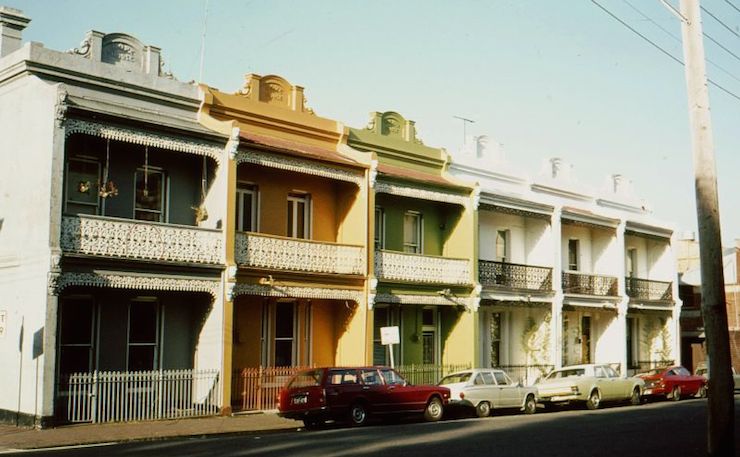OPINION: Living with two children in the rental market makes life precarious and unpredictable. Unless we change policy settings that push prices up, more families will live with the pressures mine already endures, writes Dan Murphy.
Melbourne rental seekers may have missed the news that their housing costs grew 5.3 per cent last year, faster than in other capitals and well above inflation and wages. They are unlikely however to have escaped the effects.
These days emails from estate agents advising of inspections carry a note that ‘this is a great property that is sure to attract a lot of interest.’ In case you didn’t get the hint, the agent will ‘just let you know’ they have received offers higher than the advertised price. While looking for new places this year I’ve witnessed an agent conducting a rent auction over a kitchen table and students offering to double a bond.
The Tenants Union found recently that 38 per cent of private renters endure housing stress – paying more than 30 per cent of their net income on rent – and are increasingly forced to the city’s fringes.
Squeezed out of the housing market, more Australians have no option but to rent long-term. With median prices now 9.7 times average annual household income, Melbourne has the fourth least affordable housing in the world according to the US-based Demographia group. In 1995, when many of today’s landlords began building their property portfolios, the ratio for Melbourne was 3.7 times.
ABS figures reveal that over the past two decades the number of Australian households renting privately has risen by over one million from 18 to 26 per cent of the population. This includes nearly a million households with dependent children. There is a generational divide, with an extraordinary 63 per cent of households headed by someone under 35 renting.
Alarming as they are, these statistics don’t convey the real story of those who can’t afford a place to call home. A lingering sense of uncertainty pervades our lives: in late January, with their kids ready to return to local childcare and schools, friends were served one month’s notice to pack up and leave.
Then there are the frustrations of not being master of your own domain. The indignity of having to ask repeatedly for leaks or damp to be fixed, then having to cop a cheap fix. Getting a breakage sorted often means accusatory questions from an agent on behalf of an irritated landlord.
Something as simple as putting up a shelf becomes a deliberation over whether it will breach the lease. The hassle of asking permission for any home improvement means most tenants bumble through with the place in the state determined by the owner. The benefit of any effort will accrue to them, so why bother? For Australia’s growing army of renters the endless stream of property and renovation TV, promoted ad nauseum, is just a wind-up.
Indeed, it is a sobering reality to reach 40 and foresee your remaining working and child raising years in other people’s houses paying rising rents. Beyond that, who knows? Where retirement will be spent is never too far from the minds of the long-term renter.
At this point defenders of the status quo fire back that you should have saved harder and got in when you had the chance in an affordable suburb. This victim blaming ignores the fact that there is no level playing field. Policy settings that privilege those with wealth to invest in housing have driven prices up.
Credible estimates put the budget impact of real estate negative gearing deductions at $4-5 billion. The ATO has costed capital gains tax discounts for investors at $6.1 billion dollars annually. In recent years home owners have been offered subsidised solar panels and roof insulation which have cut their energy bills.
Those struggling to get off the rental roundabout are entitled to ask what’s in it for us? In short, not much.
Labor’s National Rental Affordability Scheme, which supported long-term dwellings for low and middle income earners, was allocated $4.5 billion over 10 years. It was unceremoniously dumped in the unpopular 2014 Hockey budget before all the money was spent.
Removing negative gearing deductions and the CGT discount for property investors would make houses more affordable and help balance the budget, yet has long been a political no go zone. A powerful coalition of landlords, developers and banks scares off any change. Ever higher property prices require bigger loans and interest payments, the bedrock of the banks’ huge profits.
Will it be ever thus? That will be decided by Generation Rent themselves. A bloc of mostly PAYG taxpayers, they may come to resent the injustice of subsidising their landlords’ wealth accumulation. If abolishing tax breaks is a bridge too far, demands that affordable housing schemes attract similar incentives and be mandated in large scale developments may gain currency. And a party that responds to millions who need housing to be treated as a human right, not a get rich quick scheme, may just find there’s votes to be had.
Donate To New Matilda
New Matilda is a small, independent media outlet. We survive through reader contributions, and never losing a lawsuit. If you got something from this article, giving something back helps us to continue speaking truth to power. Every little bit counts.





